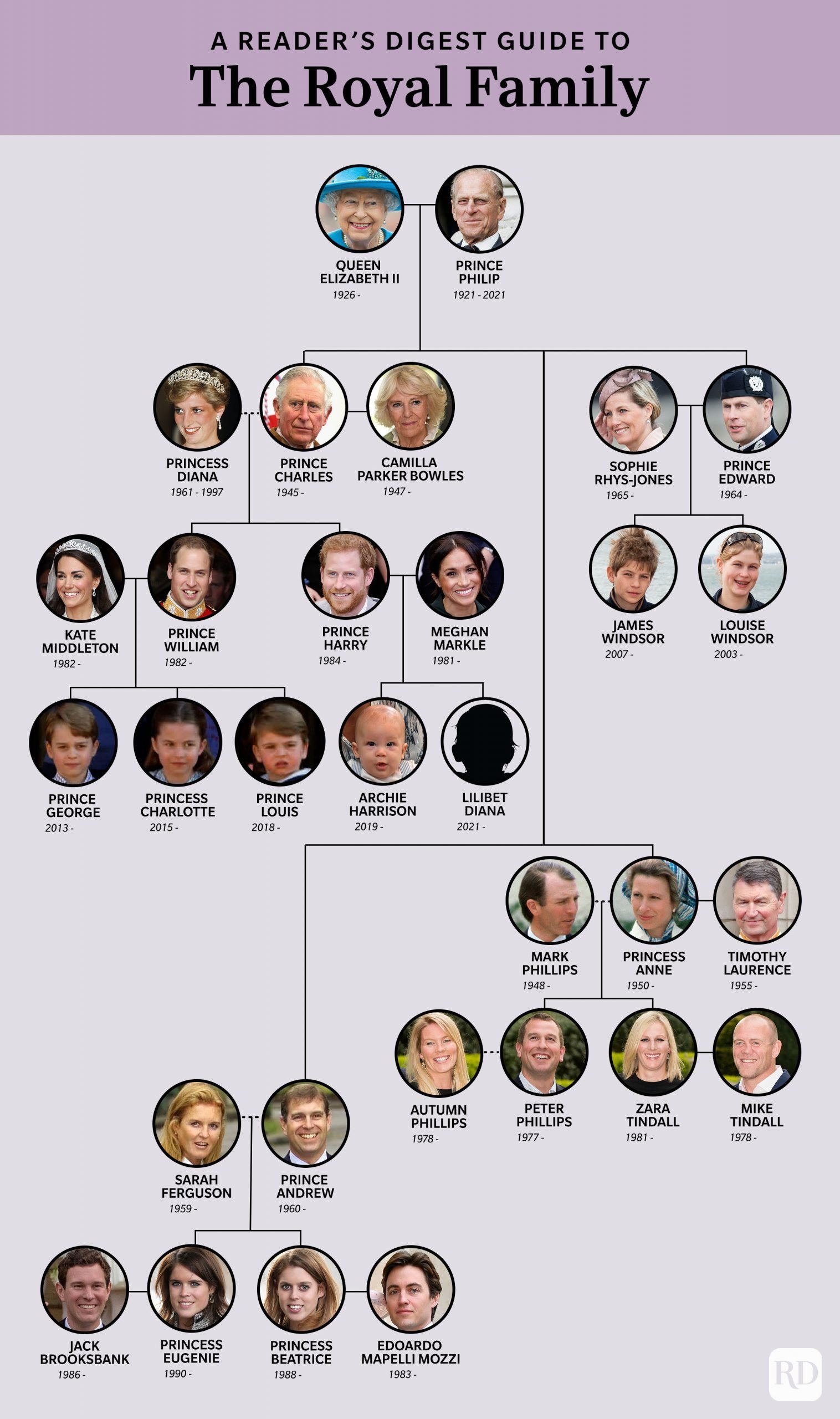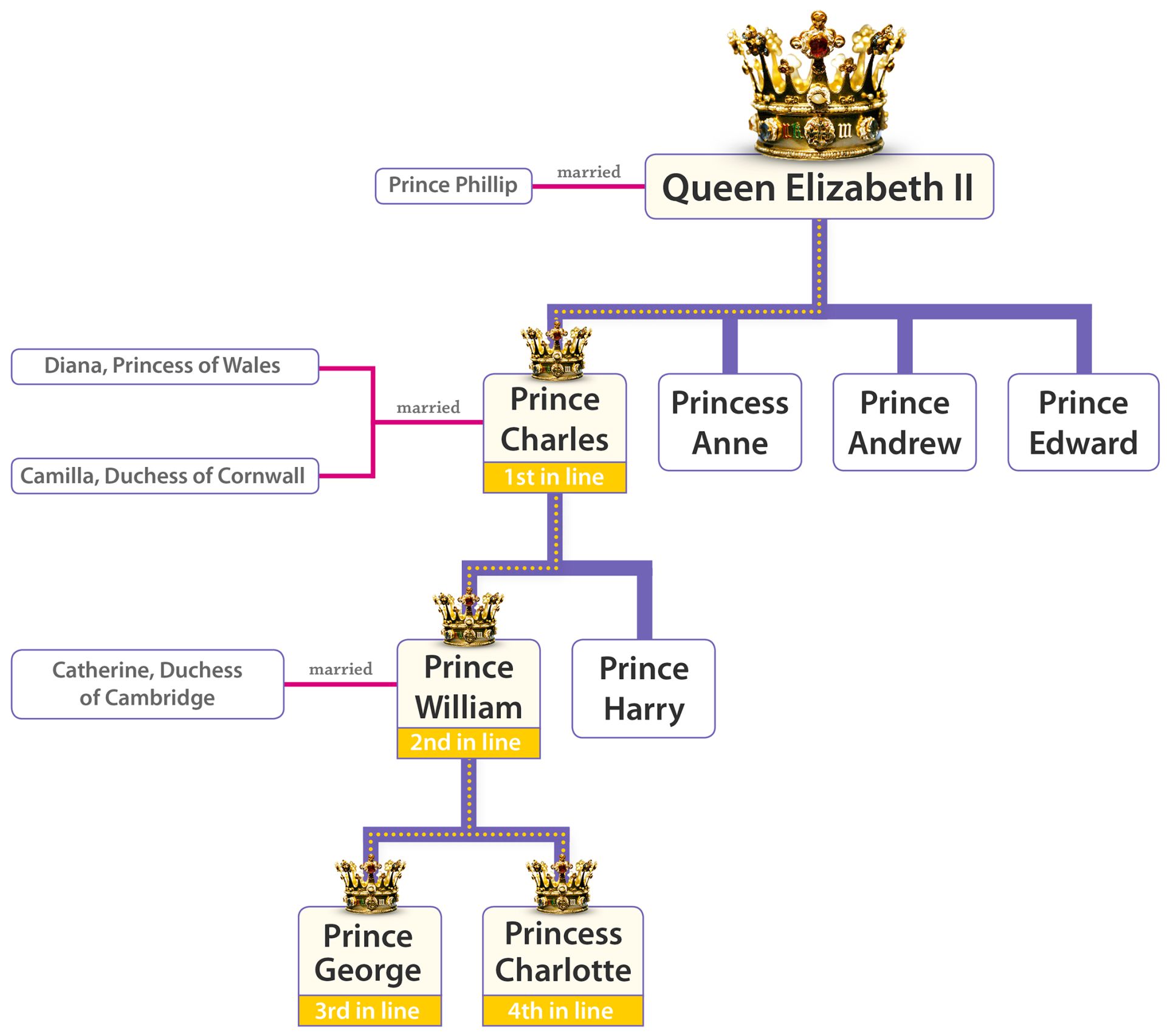Royal Family Secrets: Unveiling The Truth Behind The Crown
Ever stopped to consider the purpose of royalty in the modern age? Their significance extends far beyond mere tradition; they actively mold societal values and bolster charitable endeavors.
The role of crown family members, particularly in constitutional monarchies, is a subject of ongoing discussion and evolving understanding. While the head of state in a monarchy, be it a king or queen, embodies a nation's history and heritage, the extent of their power and influence varies greatly depending on the specific political structure. In the United Kingdom, for instance, monarchy stands as the oldest form of government, yet the British monarchy operates as a constitutional one. This signifies that while the sovereign reigns as head of state, legislative power resides with an elected parliament.
| Aspect | Details |
|---|---|
| Role | Symbol of national unity, ceremonial duties, support of charitable organizations |
| Power | Limited in constitutional monarchies; largely symbolic with influence |
| Succession | Determined by order of succession; typically hereditary |
| Charitable Involvement | Patrons or presidents of numerous organizations; significant fundraising |
| Examples | Supporting charitable causes, representing the nation abroad, attending official functions |
| Website Reference | The Royal Family Official Website |
The influence of the monarchy often stems from tradition and their ability to convene and connect disparate sections of society. The order of succession carefully details which royal family member assumes the throne upon the death or abdication of the current monarch. This ensures a smooth transition and continuity within the institution. The presence and historical weight of the monarchy offer a sense of stability, particularly during times of rapid social and political change.
- Jamaica Yuejie The Ultimate Style Guide Is It A Scam
- Who Is Dylan John Burke Joan Cusacks Son Voice Actor
Members of the royal family are frequently involved in various philanthropic endeavors. According to royal.uk, approximately 3,000 charitable organizations list a member of the royal family as a patron or president. Beyond lending their names, some royals also establish their own organizations, further demonstrating their commitment to social causes. The Queen, for instance, is estimated to have helped raise over 1 billion for charities throughout her reign. Being a royal patron serves as a potent form of public relations, bringing valuable exposure to the respective charity and amplifying its reach.
Historical events have shaped the modern understanding of monarchy. King John's signing of the Magna Carta in 1215 stands as a landmark moment, acknowledging limitations on the monarchy's powers and establishing the principle that the crown could not impose taxes without consent. This event initiated a gradual shift towards a more balanced distribution of power, setting the stage for the constitutional monarchies we see today.
Analyzing committees within organizations offers insights into decision-making processes, though not directly related to monarchy, the principles of nominations, budgeting, and human resources are relevant to all large institutions. Similarly, the role of a deacon screening committee in a church highlights the importance of selecting individuals who are respected and trusted by the community.
In a different vein, the wisdom and experience offered by grandparents within a family underscore the significance of intergenerational connections. Grandparents provide guidance, love, and a sense of history, strengthening family bonds and passing down traditions. This echoes the monarchy's role in preserving national heritage and cultural identity.
The concept of service is also woven into the fabric of society. Magistrates, for example, volunteer their time to hear cases in courts, dealing with criminal, civil, and family matters. Despite the unpaid nature of the role, magistrates play a crucial part in upholding the justice system. This dedication to public service mirrors the responsibilities undertaken by members of the royal family, who engage in numerous official engagements throughout the year.
Henry Crown and Company exemplifies a successful family office, demonstrating how wealth and influence can be leveraged for both financial gain and philanthropic purposes. The Crown family's legacy, spanning over a century, embodies a commitment to diverse investments, operational companies, and philanthropic initiatives. This reflects the values and aspirations of the family, ensuring their impact extends beyond their immediate sphere.
The annual Trooping the Colour parade, with the royal family appearing on the balcony of Buckingham Palace, serves as a visual representation of national unity and tradition. Figures like Prince Louis, Princess Charlotte, and Prince Edward, Duke of Edinburgh, exemplify the different generations within the royal family and their respective roles.
When discussing family dynamics, it is crucial to identify and list all family members who will participate in defining roles and responsibilities. Each member should reflect on their existing contributions and initiate open conversations about expectations and mutual support. This ensures a harmonious and functional family environment.
Duties represent the obligations that individuals are expected to fulfill. In a family context, this encompasses providing security, ensuring discipline, and meeting basic needs such as food, clothing, shelter, and education. The Prince of Wales's role as heir to the throne epitomizes the concept of duty, supporting the monarch as a focal point for national pride, unity, and allegiance. He represents stability, highlights achievements, and emphasizes the importance of service and the voluntary sector.
Monarchy, as a system of government, has a long and complex history. In the United Kingdom, it has evolved over centuries, adapting to changing social and political landscapes. While the monarch remains the head of state, the power to make and pass legislation lies with an elected parliament. This delicate balance ensures that the monarchy retains its symbolic significance while respecting democratic principles.
The royal family's residences, including Clarence House and Kensington Palace, are held in trust for future rulers and cannot be sold by the monarch. Sandringham House in Norfolk and Balmoral Castle in Aberdeenshire are privately owned by the royal family, representing their personal connection to specific locations throughout the country.
Members of imperial families often dedicate their lives to attending official functions and participating in religious rituals. These duties, while ceremonial in nature, contribute to the preservation of tradition and cultural heritage. The CPS Board, in contrast, provides strategic leadership and ensures that the organization delivers a professional and efficient service. This highlights the diverse range of responsibilities undertaken by individuals in positions of power and authority.
Each year, working members of the royal family undertake over 2,000 official engagements in the UK and overseas. These engagements vary greatly, from visits to community initiatives to welcoming heads of state and presenting honours at investiture ceremonies. This level of activity underscores the royal family's commitment to public service and their role in representing the nation on both domestic and international stages.
The royal family encompasses individuals born into the family and those who have married into it. However, not every member of the royal family is a member of the royal house. By act of parliament, the members of the royal house are specifically defined, including the monarch and the former monarch on abdication.
The current King of Spain is Felipe VI, following the abdication of his father, King Juan Carlos I, in 2014. Spain operates as a parliamentary monarchy, where the king serves as head of state but does not possess legislative or executive power. Laws are made by the parliament and the government, reflecting a separation of powers.
The acceptability of board members' actions within organizations depends on their role and the relationship between the organization and the crown entity's area of responsibility. Board members must ensure that their advocacy of particular interests does not override their governance responsibilities or duties as members. This emphasizes the importance of ethical conduct and accountability in positions of authority.
The Swedish Crown Princess Couples Foundation, established by Crown Princess Victoria and Prince Daniel, combats social isolation and promotes good health among children and young people in Sweden. This highlights the royal family's commitment to addressing social issues and improving the lives of vulnerable populations.
In Canada, the monarch is officially titled King of Canada. He and other members of the royal family undertake public and private functions domestically and abroad as representatives of Canada. However, the monarch is the only member of the royal family with any constitutional role, reflecting a similar structure to the British monarchy.
Immigration policies can impact social work practice when family offenses lead to deportation, hindering individuals' willingness to report abuse. This underscores the complex interplay between legal frameworks and social services, particularly when dealing with vulnerable populations.
In the UK, criticism of the monarchy and specific members of the royal family is often politicized. This can lead to contentious debates and calls for disclaimers on media platforms, highlighting the sensitivity surrounding the role and image of the monarchy.
Other members of imperial families may perform ceremonial and social duties but have no role in the affairs of government. The duties of an emperor are typically passed down to their male children, ensuring the continuation of the hereditary line. The Japanese monarchy is the oldest continuous hereditary monarchy in the world, highlighting the enduring power of tradition and lineage.



Detail Author:
- Name : Mr. Maxime Wiegand
- Username : eulah85
- Email : vernie83@yahoo.com
- Birthdate : 2002-12-16
- Address : 5617 Olson Pike Breitenbergberg, SC 32996-8083
- Phone : +13376293792
- Company : Klocko Group
- Job : Avionics Technician
- Bio : Cumque voluptatum atque voluptate asperiores aspernatur laudantium. Harum ut facilis officiis atque enim soluta est.
Socials
twitter:
- url : https://twitter.com/lessie_real
- username : lessie_real
- bio : Numquam placeat sit sapiente aut ut sequi mollitia natus. Natus eligendi aut quas maxime modi omnis omnis. Et a aut similique doloribus.
- followers : 6334
- following : 1632
facebook:
- url : https://facebook.com/lessiebaumbach
- username : lessiebaumbach
- bio : Veritatis quo impedit aut quia pariatur.
- followers : 1370
- following : 158
tiktok:
- url : https://tiktok.com/@baumbach1992
- username : baumbach1992
- bio : Magnam nihil beatae perferendis dolor omnis.
- followers : 6406
- following : 1286